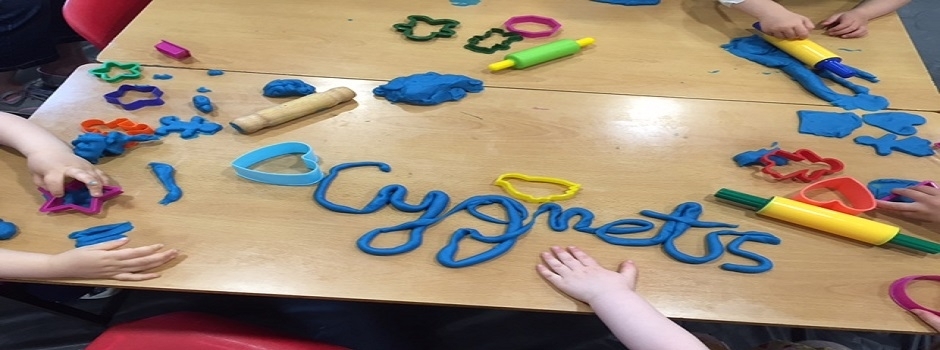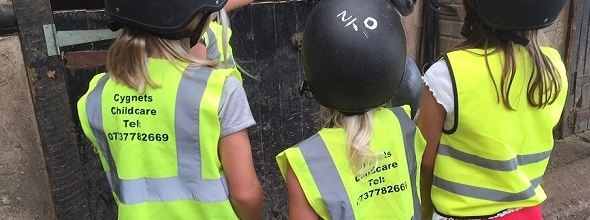Extra Curricular Activities (1)
The Power of Music in Early Childhood Development: A Holistic Approach
"Hey parents! 🎶 Ever wondered why your little one turns into a mini rockstar when you play their favourite tune? It’s not just adorable—it’s science! Let’s dive into the magical, musical world of early childhood development and see why music is the secret sauce to raising a well-rounded kiddo. And yes, we’ll keep it fun and light-hearted, because who said learning can’t be a laugh?"- Rose Dias BA (Hon) EYEP, Cygnets Childcare, Redhill Music is a powerful tool in early childhood development, offering a wide range of benefits that align with the Early Years Foundation Stage (EYFS) framework. At Cygnets Childcare Redhill, we integrate music into our educational philosophy, drawing on insights from leading organizations like UNICEF to support our approach and using our own personal experience nurturing our own two children to adulthood as well as being in childcare, education and in human resources industry over the past two decades. Music enriches our practice! Cognitive DevelopmentAt Cygnets Childcare Redhill, we believe that music enhances brain development, improving memory, attention, and problem-solving skills. These cognitive benefits are crucial for academic success and lifelong learning. UNICEF highlight how music improves memory and cognitive skills, making learning more engaging and enjoyable.Research by neuroscientists at USC indicates that music instruction can significantly accelerate brain development in young children. This acceleration is particularly evident in areas responsible for processing sound, language development, speech perception, and reading skills. These findings underscore the importance of integrating music into early childhood education to foster cognitive and linguistic growth.Imagine your child’s brain as a tiny orchestra, with neurons playing instruments. When they listen to music, it’s like giving those neurons a standing ovation! Music helps with memory, attention, and even math skills. So, next time your toddler is banging on pots and pans, just smile and think, “Future Einstein in the making!”Emotional ExpressionMusic provides a healthy outlet for children to express their emotions with no language barriers. At Cygnets Childcare Redhill, we see how it helps children understand and manage their feelings, reducing stress and promoting emotional well-being. UNICEF echo this, noting that music reduces stress levels and fosters emotional well-being.Music is like a magic wand for emotions. It can calm a tantrum, spark joy, or even help them express feelings they can’t put into words. Think of it as their personal soundtrack to life. So, when they start dancing to their favourite tune, join in! It’s a dance party for their soul. Social SkillsParticipating in musical activities encourages teamwork, cooperation, and communication. At Cygnets Childcare Redhill, we observe how music helps children develop empathy and understand social cues, fostering better relationships with peers. This is supported by UNICEF, who emphasize music’s role in enhancing social skills and promoting cooperation. Music is a universal language and a great conversation starter which sets the scene for positive interaction.Group music activities teach kids about teamwork and cooperation. Whether it’s a playdate jam session or a family sing-along, they’re learning to share, take turns, and collaborate. Plus, it’s a great excuse for you to show off your air guitar skills. Rock on, parents!Language and LiteracyMusic aids in language development by improving vocabulary, pronunciation, and comprehension. At Cygnets Childcare Redhill, we incorporate singing and listening to music to enhance children’s ability to recognize sounds and patterns in language. UNICEF also highlight music’s role in improving literacy and overall academic performance.Ever noticed how kids can remember every word to “Baby Shark” but forget where they left their shoes? That’s because music enhances language skills! Singing along to songs helps with vocabulary and pronunciation. So, let them belt out those nursery rhymes—it’s like karaoke night for their brains!Physical CoordinationEngaging with music through dancing or playing instruments improves motor skills and physical coordination. At Cygnets Childcare Redhill, we encourage children to be active and develop a sense of rhythm and timing. UNICEF agree, noting that music develops both gross and fine motor skills.From clapping to dancing, music gets those little bodies moving. It helps with coordination and motor skills. So, when your child is twirling around the living room, they’re not just being cute—they’re working on their future dance moves for prom!Creativity and ImaginationMusic stimulates creativity and imagination, allowing children to explore new ideas and express themselves uniquely. At Cygnets Childcare Redhill, we nurture children’s artistic abilities and encourage innovative thinking. UNICEF also recognize music’s role in fostering creativity and imagination.Integrating Music into Early Years EducationAt Cygnets Childcare Redhill, we integrate music into our daily routines to create a supportive and enriching environment. This approach aligns with the EYFS framework, which emphasizes the importance of expressive arts and design in early childhood education. By incorporating music, we help children feel valued and understood, fostering their overall growth and development.Would you like to know more about our specific musical activities? Let us know in the comments below! Feel free to share your thoughts or experiences with music in early childhood development. We’d love to hear from you!Further reading to discover the power of music:9 Reasons Music Is Important for Children and Development - Edkids Home10 reasons why music is great for your child (and you too) - BBC Tiny Happy PeopleBaby music: The soundtrack to your child's development | UNICEF ParentingChildren’s brains develop faster with music training - USC Today

